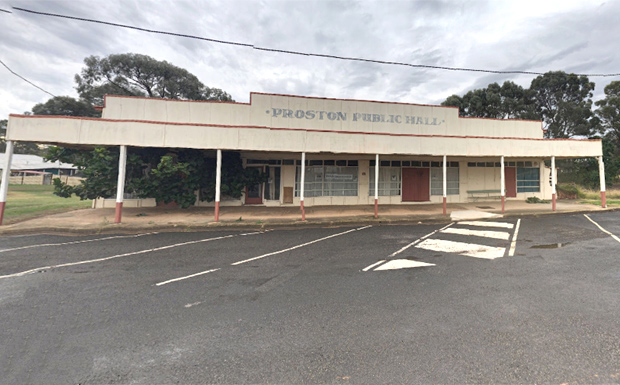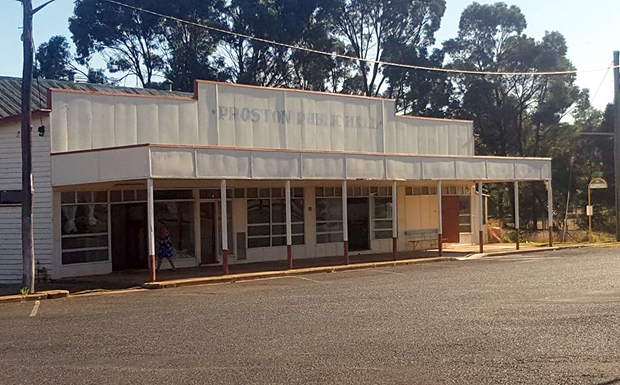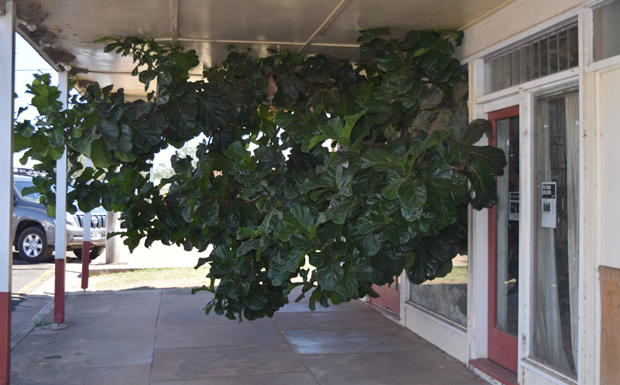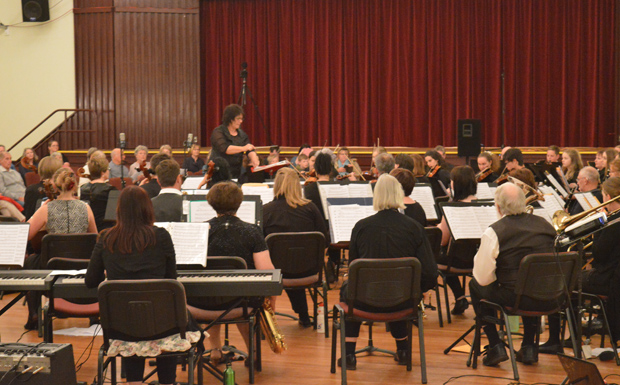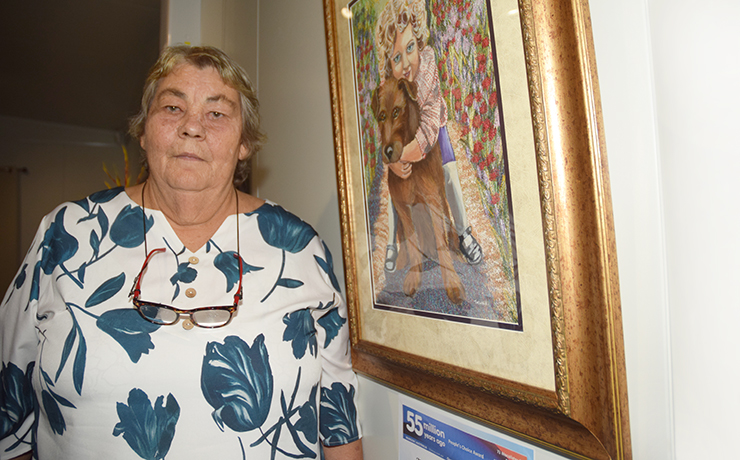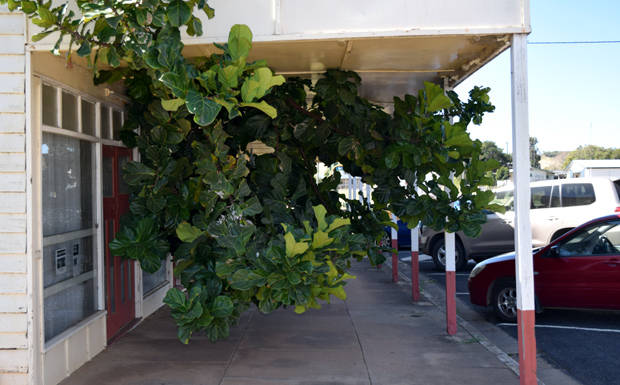
September 6, 2017
Proston’s famous footpath ficus plant is no more … local residents watched in stunned disbelief – and some with anger – as the hardy plant was given the chop on Monday.
The ficus, which has been growing out of the former Proston Public Hall in Blake Street for years, was cut down by a new owner who recently purchased the building for the bargain price of $31,500.
Talk around town is that the buyer, from interstate, plans to live in the building.
The sale has also scuttled plans by the Proston Men’s Shed, who had been hoping they could turn the old hall into a work area for the group.
Proston Public Hall was built in 1934 during the town’s boom years. It housed a cinema in the rear and four shops along the front.
For many years it also served as Proston’s Town Hall after the picture theatre wound down.
While no one knows where the ficus originally came from, it is believed the plant was left in the Hall’s foyer when the building closed about nine years ago after the Proston Community Hall was built to replace it.
Over many years – and without watering – the plant continued to grow and make its way towards the light.
The ficus steadily took over the front window of one of the retail shops, and eventually found a broken window pane which allowed it to expand on to the footpath.
In recent years the plant’s extraordinary progress turned it into a mini-tourist attraction for the town.
The ficus also won the respect of locals, who were happy to walk on the road to get around it.
Nick Blanch, from Jacaranda Tearooms, said he was sad to see the plant go and thought most other residents would share the same feeling.
Some residents said they saw the plant’s steady expansion not as a sign of dereliction but as a dogged refusal to give up in the face of difficult circumstances, which they found inspiring.
Others said they just thought it was nice to see such an exuberant splash of green in the CBD.
One said children would miss it the most, as it had been there all their lives.
As the ficus was cut down, some locals took cuttings in the hope they can resurrect the much-loved plant at another location.
